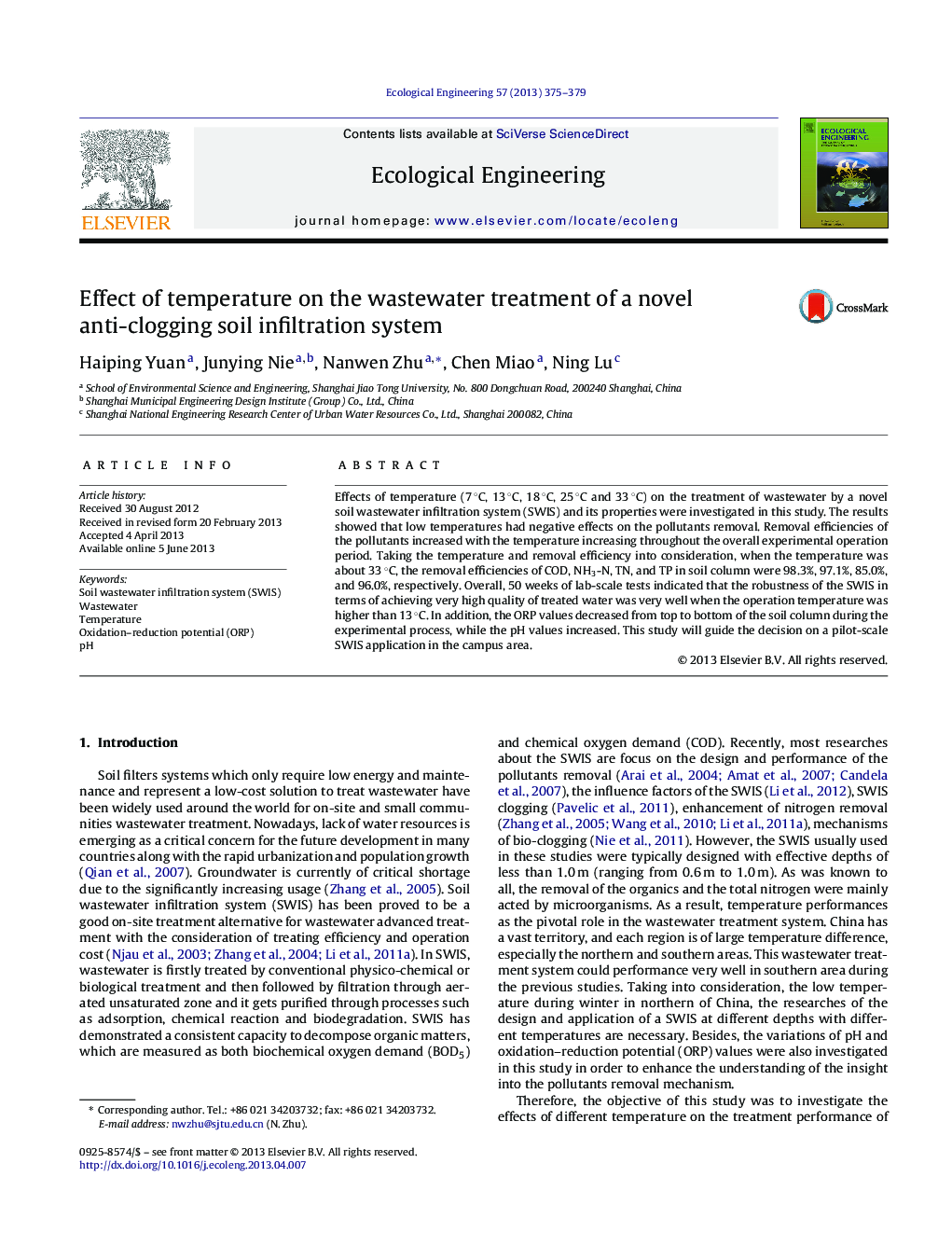| Article ID | Journal | Published Year | Pages | File Type |
|---|---|---|---|---|
| 6302642 | Ecological Engineering | 2013 | 5 Pages |
Abstract
Effects of temperature (7 °C, 13 °C, 18 °C, 25 °C and 33 °C) on the treatment of wastewater by a novel soil wastewater infiltration system (SWIS) and its properties were investigated in this study. The results showed that low temperatures had negative effects on the pollutants removal. Removal efficiencies of the pollutants increased with the temperature increasing throughout the overall experimental operation period. Taking the temperature and removal efficiency into consideration, when the temperature was about 33 °C, the removal efficiencies of COD, NH3-N, TN, and TP in soil column were 98.3%, 97.1%, 85.0%, and 96.0%, respectively. Overall, 50 weeks of lab-scale tests indicated that the robustness of the SWIS in terms of achieving very high quality of treated water was very well when the operation temperature was higher than 13 °C. In addition, the ORP values decreased from top to bottom of the soil column during the experimental process, while the pH values increased. This study will guide the decision on a pilot-scale SWIS application in the campus area.
Related Topics
Life Sciences
Agricultural and Biological Sciences
Ecology, Evolution, Behavior and Systematics
Authors
Haiping Yuan, Junying Nie, Nanwen Zhu, Chen Miao, Ning Lu,
